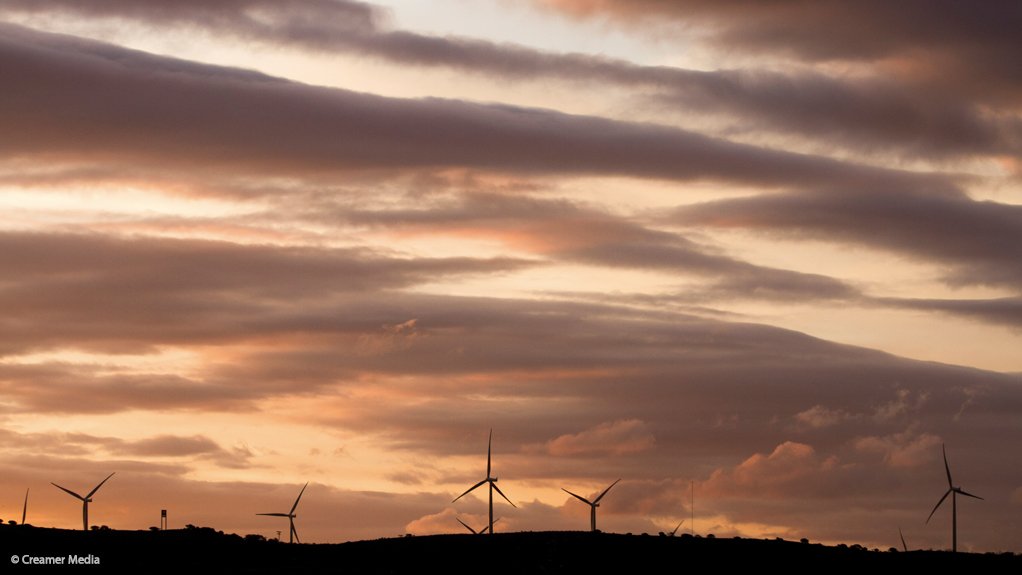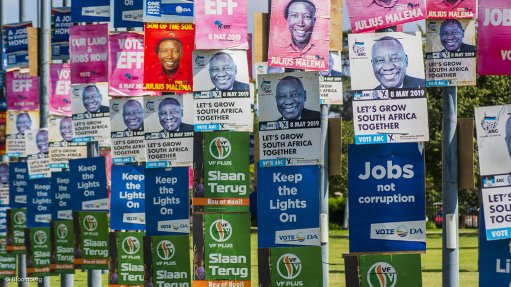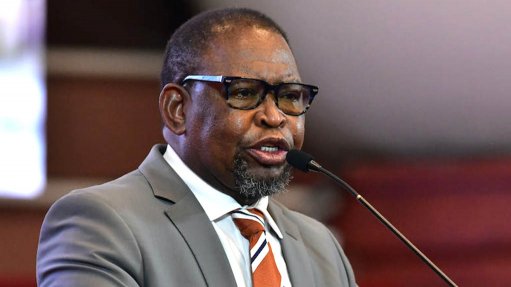Eskom’s IPP stance seen undermining investment and green industrialisation
The decision by Eskom not to sign any new power purchase agreements (PPAs) with independent power producers (IPPs) beyond those selected in the latest competitive bidding round could have a “chilling” effect on investment and undermine industrialisation efforts under way in the green economy, industry participants warn.
In a letter sent to Energy Minister Tina Joemat-Pettersson last week, Eskom chairperson Dr Ben Ngubane indicated that the utility was unwilling to sign further PPAs beyond the preferred projects selected under bid widow 4.5 of the Renewable Energy Independent Power Producer Procurement Programme (REIPPPP).
This raised serious questions about the fate of projects that bid for the 1 800 MW available under the so-called expedited round of the REIPPPP, as well as the fate of the two projects, with a combined capacity of 900 MW, being evaluated under the Coal Baseload IPP Programme. It also raised questions about the legality of Eskom’s approach, as it was merely the buyer of electricity, with the Department of Energy (DoE) procuring the capacity in line with Ministerial determinations published in the Government Gazette.
However, Ngubane’s letter came amid a change in supply/demand dynamics, with Eskom having moved from deficit to surplus, primarily as a result of a recovery in the availability of its coal-fired plants. The recovery meant that some 3 700 MW of additional capacity was available between April and June this year when compared with the corresponding period of 2015. As a result Eskom has questioned the wisdom of adding more IPP capacity, both renewable and conventional, at a time when demand is also flat to declining.
However, South African Photovoltaic Industry Association (Sapvia) CEO Moeketsi Thobela describes the current discourse having the potentially “damaging” outcome of “chilling” investment in the renewables sector, as well as the rest of the economy. “Hardly an outcome this economy requires when the outlook for South Africa’s economy looks gloomy,” he said in a statement, highlighting the International Monetary Fund’s latest forecast that the economy would only grow by 0.1% this year. The South African Reserve Bank, meanwhile, forecast 0% growth for the year, a downward revision from its previous estimate of 0.6%.
“Could it be said that we are seeing a public sector ‘lock-out’ of private sector investment?” Thobela asked, adding that if the REIPPPP was seen as being constrained by grid availability “why is the private sector not provided an opportunity to contribute towards alleviating this constraint?”
Likewise, South African Independent Power Producers Association chairperson Sisa Njikelana warned that if investor confidence was damaged it would exacerbate the current precarious investment climate. “Obviously we can ill-afford to be in such a situation given the current economic morass.”
Njikelana appealed for cool heads, but also for the energy and public enterprises ministers to ensure deliberations on the future role of IPPs to be as inclusive as possible. “While stakeholders and players in this industry do engage from time to time, the action taken by Eskom further exposes that such engagements are either artificial, fragmented or terse to be meaningful.”
Another source, who spoke on condition of anonymity, challenged government to find another public-private initiative in South Africa that was delivering as well as the REIPPPP. The source highlighted not only the sharp decline in prices in the core area of adding new generation capacity, but also the strides taken by IPPs in delivering on socioeconomic development, black economic empowerment and green industrialisation.
Thobela also picked up on the industrialisation theme, noting that Sapvia also represented photovoltaic (PV) component manufacturers. He said it was “difficult to articulate the pain that is being inflicted on the emerging PV manufacturing sector due to the uncertain evolution of the REIPPPP”.
“The negative effect on attempts to reindustrialise the South African economy and boost job-creation are all too obvious to see.”
South African Renewable Energy Council chairperson Johan van den Berg added that the move by Eskom could threaten jobs and manufacturing facilities servicing the R192-billion renewable-energy industry. “With 85% of foreign direct investment now coming from renewable energy, Eskom’s stance can put major pressure on the rand and contribute to threatening the country’s sovereign credit rating,” he added.
Another source, who refused to be named, argued that the situation called for leadership, particularly from Joemat-Pettersson. While the source disagreed with Eskom and its hostile stance towards IPPs, he expressed some sympathy for the utility given that it, too, was operating in a policy vacuum.
The Integrated Resource Plan is six years old and out of date and government has failed to deliver guidance to either Eskom or the IPP community on how the addition of new generation capacity should proceed in light of lower-than-expected demand. “The DoE needs to create policy certainty,” the source said.
Speaking in Port Elizabeth on Friday at the launch of a green economy programme, Joemat-Pettersson appeared to lend support to the renewables sector.
She argued that South Africa had embarked on a “very aggressive” renewables new build programme, with more than 2 600 MW of solar and wind capacity already connected.
“Broadening South Africa’s energy mix through tapping our vast renewable resources and fostering partnerships with the private sector is crucial in our quest to simultaneously address all dimensions of the energy ‘trilemma’, namely energy security, energy equity and environmental sustainability,” she said.
Comments
Press Office
Announcements
What's On
Subscribe to improve your user experience...
Option 1 (equivalent of R125 a month):
Receive a weekly copy of Creamer Media's Engineering News & Mining Weekly magazine
(print copy for those in South Africa and e-magazine for those outside of South Africa)
Receive daily email newsletters
Access to full search results
Access archive of magazine back copies
Access to Projects in Progress
Access to ONE Research Report of your choice in PDF format
Option 2 (equivalent of R375 a month):
All benefits from Option 1
PLUS
Access to Creamer Media's Research Channel Africa for ALL Research Reports, in PDF format, on various industrial and mining sectors
including Electricity; Water; Energy Transition; Hydrogen; Roads, Rail and Ports; Coal; Gold; Platinum; Battery Metals; etc.
Already a subscriber?
Forgotten your password?
Receive weekly copy of Creamer Media's Engineering News & Mining Weekly magazine (print copy for those in South Africa and e-magazine for those outside of South Africa)
➕
Recieve daily email newsletters
➕
Access to full search results
➕
Access archive of magazine back copies
➕
Access to Projects in Progress
➕
Access to ONE Research Report of your choice in PDF format
RESEARCH CHANNEL AFRICA
R4500 (equivalent of R375 a month)
SUBSCRIBEAll benefits from Option 1
➕
Access to Creamer Media's Research Channel Africa for ALL Research Reports on various industrial and mining sectors, in PDF format, including on:
Electricity
➕
Water
➕
Energy Transition
➕
Hydrogen
➕
Roads, Rail and Ports
➕
Coal
➕
Gold
➕
Platinum
➕
Battery Metals
➕
etc.
Receive all benefits from Option 1 or Option 2 delivered to numerous people at your company
➕
Multiple User names and Passwords for simultaneous log-ins
➕
Intranet integration access to all in your organisation





















